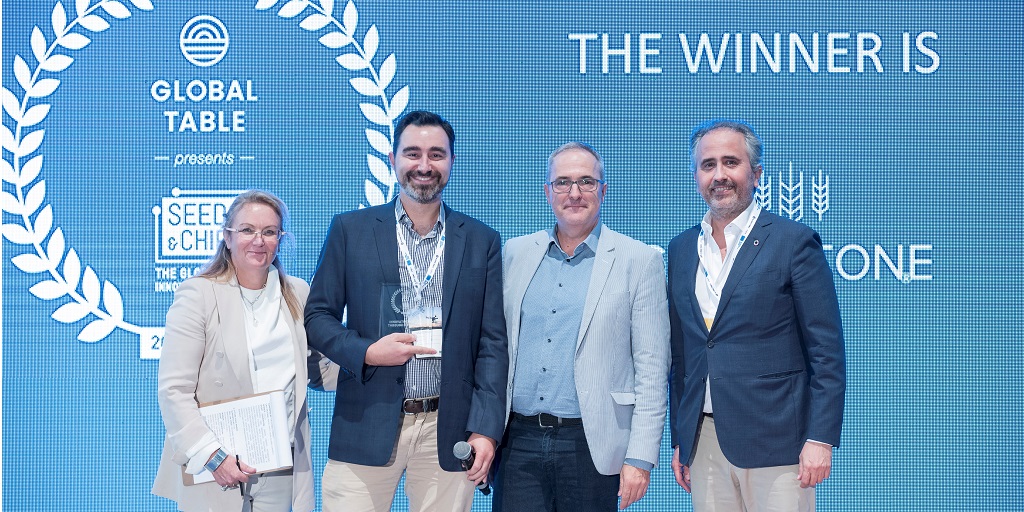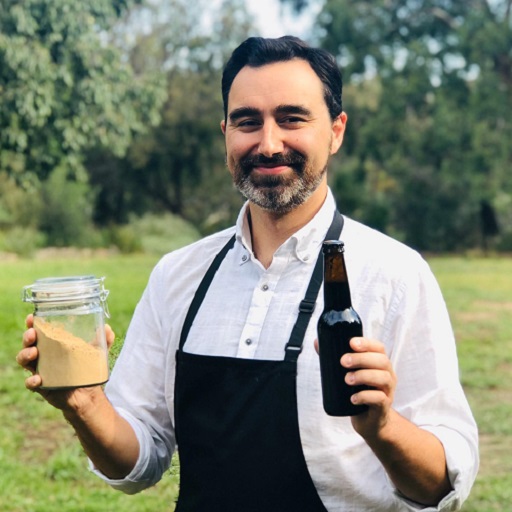
Grainstone turns spent grain into flour
Byron Bay foodtech startup Grainstone is aiming to turn brewers’ spent grain into flour.
Grainstone founder Matthew Kronborg is calling for expressions of interest from brewers who want to get involved in the project, which will see the spent grain from brewing processed into flour for use in food production, making goods like cereals, cakes, pies, sausages and bread.
“Grainstone works to convert brewers’ spent grain into a high-protein, high-fibre, nutritious flour that can be used in a range of food applications,” Kronborg told Brews News.
“We’re working to solve this problem that brewers have on a larger commercial scale. A lot of brewers have problems disposing of their spent grain, finding consistent ways to dispose of it. Often it goes to animal feed or to landfill.
“The opportunity to convert into flour for human food consumption is of huge value to the brewing industry and society in general.”
Kronborg originally worked for airline Qantas as a senior advisor for its environment and community strategy projects.
“I was working at Qantas on alternative energy solutions, waste to energy projects, and waste to livestock feed projects and this was a natural evolution of that, converting consistent, large volume byproducts from Australian industry into higher value products. It’s good for society and the economy,” Kronborg explained.
Since then he has held various roles at the United Nations Association of Australia and on the board of various conservation and sustainability trusts and businesses, but it was only last year that he decided to move forward with the idea for Grainstone.
“I’d been aware of this opportunity for a while and I was surprised no one had done it yet, and thought I’d get the team together to try and crack this nut and put this value chain together, which we’re working on at the moment,” he said.
The process
The company has recently completed prototypes of its Grainstone Brewers Premium Flour to send to food manufacturers and scientists.
While the idea of processing brewers’ spent grain into flour isn’t new, the idea of turning it into a viable, large scale commercially viable process is. And with an estimated 300,000 tonnes a year of “underused” spent grain coming from the brewing industry, there is some real potential there, said Kronborg.
“Converting spent grain into flour isn’t an entirely new thing in itself, but we’re bringing a new approach,” he explained.
“We’re doing it on a large commercial scale, which gives us access to scale-of-economy benefits so we can start to get the price down and be competitive with regular flours.
“We’re integrating a technology solution and bringing new approaches including renewable energy to it, which also helps to get the cost down and increase the green credentials of the solution.”
He said that Grainstone wanted to tap into consumer trends towards so-called health foods.
“There are strong consumer trends towards plant-based proteins and low gluten flours, alternative flours, almond meal, and everyone seems to be interested in that, so we’re trying to ride that trend.
“It’s a climate and sustainable development solution. We’re looking to power our facility through 100 per cent renewable energy. It’s a benefit to the brewers as it derisks their disposal of spent grain, plus it’s a marketing and reputational opportunity, so there’s commercial advantages to working with us as well.”
Grainstone will pick up the grain from the breweries, and Kronborg said they would have their own trucks going daily rounds.
“In many cases we will need to work with breweries to find a commercially viable food safe solution for pickup,” he said.
Any brewery can get involved, and Kronborg said he was aware that each brewery would have different needs. It would also depend on the eventual location of the Grainstone processing facility.
“We are trying to create a solution that works for every brewery in each capital city catchment area.
“However, the commercial reality is that factors such as scales of economy, distance from the facility, council permit limits on trucking, brew tempo, volumes and material consistency will play into things.
“In every instance, we aim to understand each brewers current spent grain disposal challenges and offer them a tailored solution that is better for them.”
Working with spent grain
“Spent grain comes out of the brewing process hot, moist, basically it’s a malted semi-fermented barley, with the starchy sugars washed out,” Kronborg explained.
“So you’re left with the nutritious stuff, the bran and the germ of the grain. You’ve got to handle it well to maintain food safety integrity, otherwise bacteria can grow very quickly, but it’s a great material coming straight out of the brewery.”
Processing the wet, warm mush is the tricky part, as it can become contaminated fast, but Grainstone say they have a number of proprietary industrial processes to ensure it can be processed quickly and efficiently.
“[The grain is] very fibrous, it’s also very wet coming out of the brewing process, so we need to put it through an integrated drying process, which has historically been very energy intensive, and that energy cost has been a barrier preventing the easy deployment [of the technology].
“We believe we’ve got a solution to crack that challenge and other barriers that have prevented it being done on a large commercial scale as well.”
For consistency, Grainstone are looking at spent grain feedstock from grainbills that are 95 per cent barley and above.
“This covers the most widely consumed beers in Australia such as lagers/pale ales, but excludes some of the more creative small volume beers,” said Kronborg.

Grainstone founder, Matthew Kronborg receiving the Jury’s Choice ‘Innovating Health through Diet’ award at the 2019 Global Table Food Innovation Summit.
Future plans
Grainstone’s next steps are looking at a location for its new facility, and Kronborg is asking brewers for their input.
“We’re building up towards deploying a series of conversion factories in Australia co-located with the large brewing catchment areas.
The Grainstone team is also looking at alternative uses outside food production, working with QUT and receiving innovation funding from the Fight Food Waste CRC for its collaborative research work.
“We’ve got private investment but we’re also recipients of some funding from the Food Waste Cooperative research centre, we’re doing work there with QUT around applications and opportunities to use brewers spent grain in a variety of contemporary food applications such as flour, but also nutriceutical and biochemical opportunities as well, higher value niche opportunities.”
“We’re interested to hear from brewers particularly in Sydney, Brisbane and Melbourne initially as we’re conducting a feasibility study around which of those locations to deploy our first facility from there we can expand out potentially going overseas, but we’d like to see it done in Australia first.”
Grainstone is asking for expressions of interest from brewers, so for more information go to the Grainstone website, or email info@grainstone.com.au





